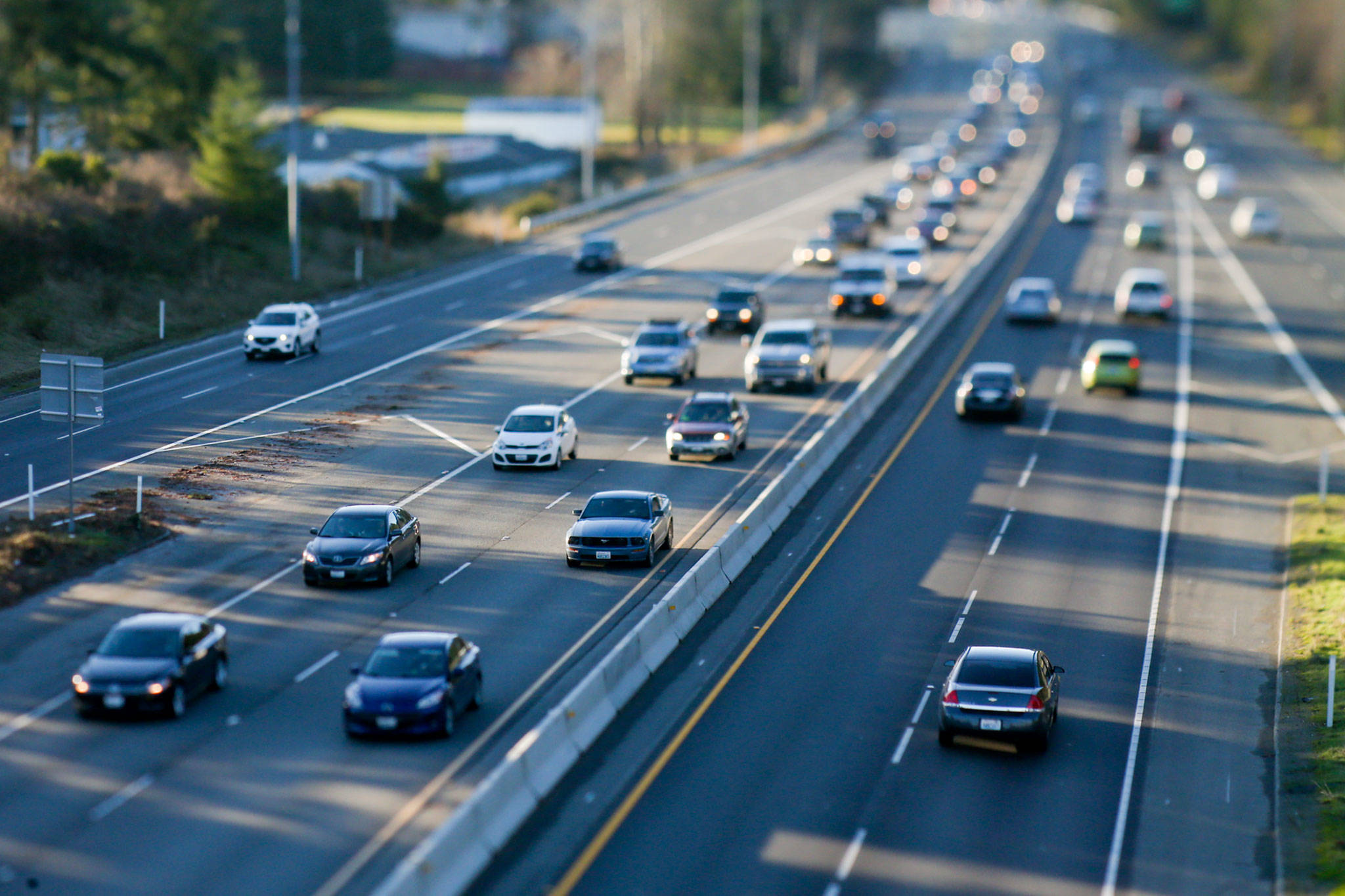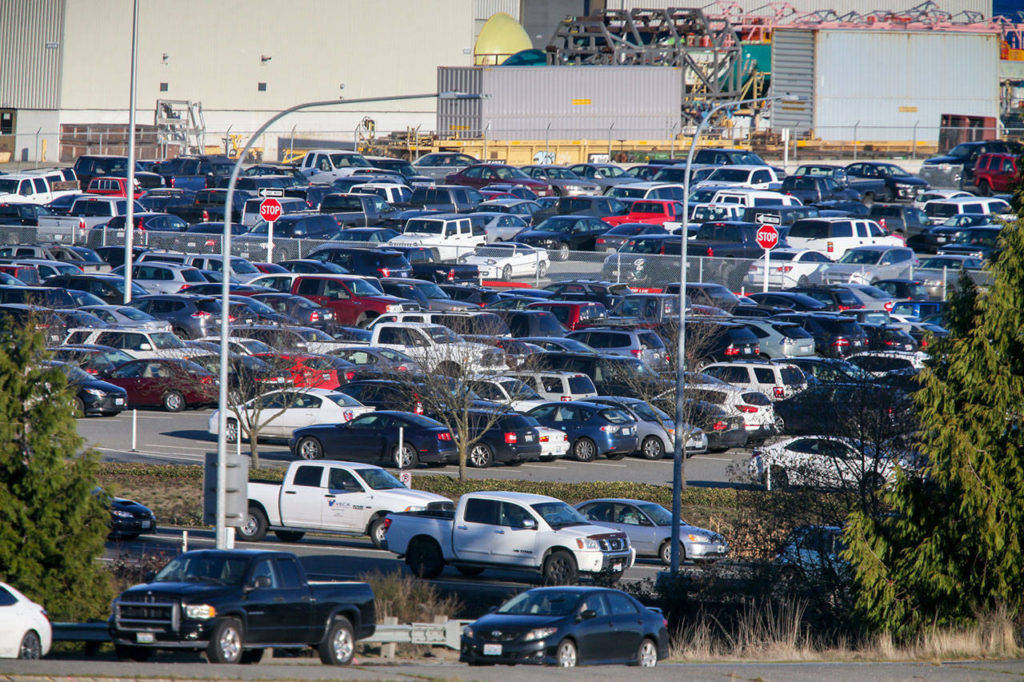EVERETT — The Boeing Co. and the city of Everett are talking about changing how the airplane maker pays for its effect on local roads and traffic.
The proposal could mean the end of longstanding limits on Boeing’s employment and parking capacity at its Everett factory.
The company last paid a traffic mitigation fee of $47.5 million in 1991, documents show. That came in anticipation of the plant expansion and the 777 line. About half the money went to the state, and most of the rest to Snohomish County and Everett.
The revenue was used for transportation projects, primarily for Highway 526 and the surface streets used to get to the plant. Examples include the 112th Street SW widening, and carpool lanes for Airport Road and Highway 525.
The mitigation plan was updated in 2001. That revision loosened restrictions on the Everett plant to no more than 21,000 parking stalls and 35,000 employees. As part of those caps, Boeing didn’t pay additional traffic mitigation fees.
The new proposal would replace that plan with one based on current traffic volumes. The company initiated the conversation, according to the city.
“We thought it was a good idea,” said Kathleen Baxter, a spokeswoman for the public works department. “Now that the technology exists to get accurate and real-time data, we want to make use of it.”
Plans call for counting all vehicle trips at entrances to the Everett plant, with a focus on the afternoon commute. Boeing’s 1991 payment was based on estimated trips during the average peak afternoon hour. That was set at 12,315 trips. Boeing says preliminary data shows fewer trips now, which means there could be road capacity to add employees. At this point, no new parking lots are planned at the site.
Under the new proposal, annual data reports would show whether traffic around the plant is surpassing the old projections. If not, Boeing doesn’t have to make additional payments. If traffic is worse, a $1,006 fee would apply to each extra trip above the average peak hour.
The baseline could be raised for the next year, freeing the company from the 12,315 figure.
The city is spending an estimated $110,000 on equipment for the program. Boeing is expected to reimburse much of the cost.
A final agreement is likely in the weeks ahead.
Rikki King: 425-339-3449; rking@heraldnet.com. Twitter: @rikkiking.
Talk to us
> Give us your news tips.
> Send us a letter to the editor.
> More Herald contact information.


























